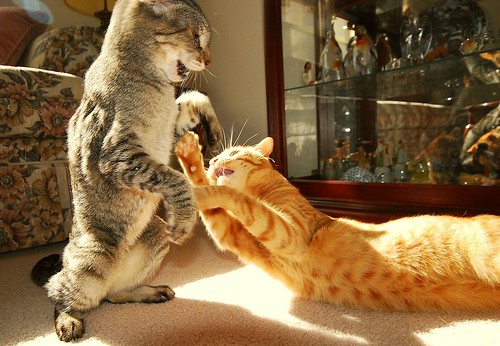What predicts achievement better than intelligence, grades or personality?
pe. A 3-year longitudinal study explored whether the two-dimensional model of trait hope predicted degree scores after considering intelligence, personality, and previous academic achievement. A sample of 129 respondents (52 males, 77 females) completed measures of trait hope, general intelligence, the five factor model of personality, divergent thinking, as well as objective measures of their academic performance before university (‘A’ level grades) and final degree scores. The findings suggest that hope uniquely predicts objective academic achievement above intelligence, personality, and…
1 min read
Does fantasizing give you the motivation to achieve your goals?
pe. Fantasies sap the energy you need to achieve your goals: Positive fantasies allow people to mentally indulge in a desired future. Whereas previous research found that spontaneously generated positive fantasies about the future predict poor achievement, we examined the effect of experimentally induced positive fantasies about the future. The present four experiments identify low energy, measured by physiological and behavioral indicators, as a mechanism by which positive fantasies translate into poor achievement. Induced positive fantasies resulted in less energy…
1 min read
What two things can stop you from choking under pressure?
straction (counting backwards from 100) or having adapted to self-awareness (being videotaped in prior attempts) both prevented choking: When pressure to perform is increased, individuals commonly perform worse than if there were no pressure ("choking under pressure'). Two mechanisms have been proposed to account for this effect-distraction (cognitive load), wherein pressure distracts attention from the task, and self focus, wherein attention shifts inward interfering with performance. To distinguish between these two competing explanations, the current experiment manipulated pressure by offering…
1 min read
What’s the secret to improving your ability to learn?
acing out learning over a period of time (the opposite of cramming) is most effective. Review materially more frequently over a longer period of time vs more intensely in fewer sessions: The spacing effect—that is, the benefit of spacing learning events apart rather than massing them together—has been demonstrated in hundreds of experiments, but is not well known to educators or learners. I investigated the spacing effect in the realistic context of flashcard use. Learners often divide flashcards into relatively…
1 min read
What marks the transition from novice to expert?
vices focus on positive feedback ("good job!") because hearing they're doing well helps them stay committed. Experts focus on negative feedback ("You're doing that incorrectly") because they're interested in progress. As people go from novice to expert their focus shifts: A large proportion of marketing communication concerns feedback to consumers. This article explores what feedback people seek and respond to. We predict and find a shift from positive to negative feedback as people gain expertise. We document this shift in a…
1 min read
Does the Socratic method really help people learn?
cratic questioning, a cornerstone of CBT, is as equally useful in coaching to raise awareness, promote reflection and improve problem-solving thinking. Padesky’s (Socratic questioning: Changing minds or guiding discovery? 1993) bifurcation of Socratic questioning, changing minds versus guiding discovery, is commented upon. The characteristics of good Socratic questions are enumerated, the pitfalls of experienced coaches’ over-reliance on intuition to guide their questioning is discussed and how continuing deliberate practice through, for example, providing the logical basis for sequencing questions can correct…
1 min read
Is it better to start off with ambitious goals or conservative goals?
a Eurekalert: Consumers who set ambitious goals have a greater level of satisfaction compared to those who set conservative goals, according to a recently published paper by the Cecile K. Cho, a University of California, Riverside assistant marketing professor. Cho and her co-author and Gita Venkataramani Johar, a professor at Columbia University, set up two experiments to compare people who set ambitious goals to those who set conservative goals. They focused on situations in which goals were achieved, and measured…
1 min read
Can being antisocial be an advantage?
r programmers and tennis players, yes: Attachment-related avoidance and anxiety have repeatedly been associated with poorer adjustment in various social, emotional, and behavioral domains. We examined two domains in which avoidant individuals might be better equipped than their less avoidant peers to succeed and be satisfied – professional singles tennis and computer science. These fields may reward self-reliance, independence, and the ability to work without proximal social support from loved ones. In Study 1, we followed 58 professional singles tennis…
1 min read








